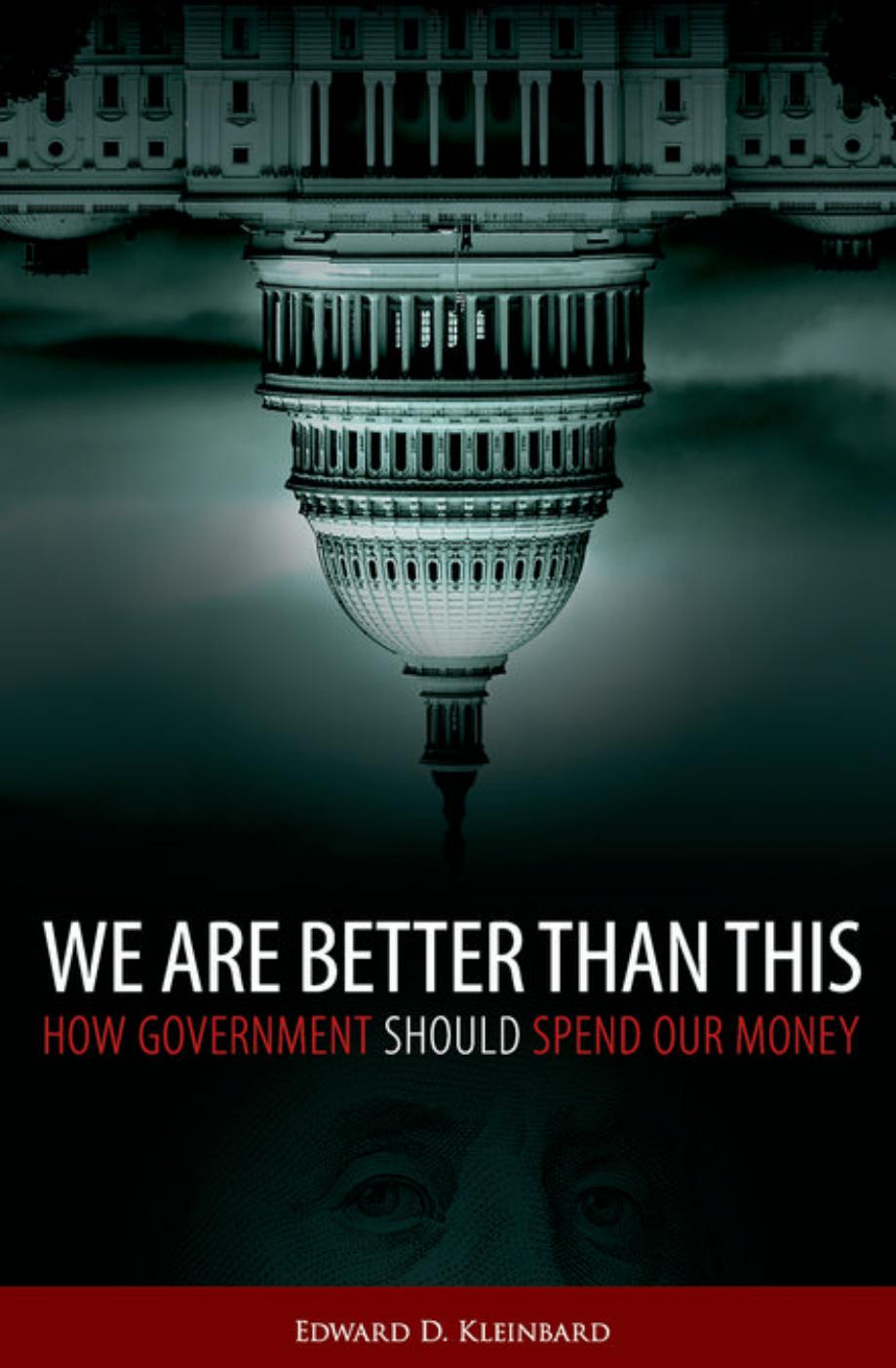We Are Better Than This: How Government Should Spend Our Money by Edward D. Kleinbard

Author:Edward D. Kleinbard [Kleinbard, Edward D.]
Language: eng
Format: epub, pdf
Publisher: Oxford University Press
Published: 2014-08-29T00:00:00+00:00
LOW TAXES YET HIGH PAIN
Chapter 8 explained that in 2012 the United States had the lowest tax collections of any OECD country as a percentage of GDP. Yet we do not behave as if that is the case: to the contrary, all the evidence suggests that we are a nation of tax whiners. Are there reasons for this, beyond revealing an odd national personality trait, dating back to the Boston Tea Party?27
Tax expenditures are a large part of the explanation. Tax expenditures distort our understanding of the tax pain that we inflict on ourselves by reducing government tax revenues in the official scorekeeping, rather than being recorded in a manner consistent with their substance, as additional tax collections offset by government spending programs. And in turn, the United States is a tax expenditure junkie: as just explained, the United States spent more through income tax expenditures in 2012 than it collected in income tax. This means that our tax rate structure operates as if we collected more than $2 trillion in income tax, not $1 trillion, and then ran additional government spending programs that cost more than $1 trillion/year.
In other words, our low tax collections are raised through a tax rate structure whose marginal rates are appropriate to a much larger taxing function than the official scorekeeping suggests. And looking at matters from the opposite direction, if additional tax revenue is needed (and chapters 6 through 8 have already demonstrated that it is), the best way to raise that additional revenue is through “inframarginal” tax collections, which is the economist’s way of saying that we should broaden the tax base rather than raise marginal rates. The reason, as described in chapter 2, is that marginal rates have a greater negative impact on our behavior—not just our propensity for tax whining, but the economic choices we make—than do average tax rates.
Scaling back tax expenditures raises tax revenues without any need to touch statutory tax rates. Admittedly, doing so can have marginal tax implications from the perspective of effective (rather than statutory) marginal tax rates—particularly for the earned income tax credit, which I conceptualize more as an adjustment to the tax rate scale for low-wage labor income than a true tax expenditure. Nonetheless, the effective marginal tax rate implications of scaling back tax expenditures in practice either are more muted when some of the largest and most inefficient tax expenditures are considered, particularly the personal itemized deductions, or simply are dominated by the efficiency losses of current law’s subsidies.
This is why every major tax reform initiative begins by proposing a vast reduction in subsidies delivered through the tax code. By doing so, either the existing rate structure can be retained, and more revenues collected, or alternatively existing revenue levels can be maintained and tax rates lowered.
Chapters 6 and 13 explain why we have no choice but to follow the first path. We are the mirror image of the fellow in the old story who complains to his doctor that his wife thinks she is a chicken.
Download
We Are Better Than This: How Government Should Spend Our Money by Edward D. Kleinbard.pdf
This site does not store any files on its server. We only index and link to content provided by other sites. Please contact the content providers to delete copyright contents if any and email us, we'll remove relevant links or contents immediately.
Zero to IPO: Over $1 Trillion of Actionable Advice from the World's Most Successful Entrepreneurs by Frederic Kerrest(4568)
Machine Learning at Scale with H2O by Gregory Keys | David Whiting(4313)
Never by Ken Follett(3956)
Harry Potter and the Goblet Of Fire by J.K. Rowling(3857)
Ogilvy on Advertising by David Ogilvy(3622)
Shadow of Night by Deborah Harkness(3368)
The Man Who Died Twice by Richard Osman(3078)
Book of Life by Deborah Harkness(2939)
The Tipping Point by Malcolm Gladwell(2921)
Will by Will Smith(2919)
Purple Hibiscus by Chimamanda Ngozi Adichie(2853)
0041152001443424520 .pdf by Unknown(2845)
My Brilliant Friend by Elena Ferrante(2831)
How Proust Can Change Your Life by Alain De Botton(2814)
How to Pay Zero Taxes, 2018 by Jeff A. Schnepper(2655)
Hooked: A Dark, Contemporary Romance (Never After Series) by Emily McIntire(2554)
Rationality by Steven Pinker(2363)
Can't Hurt Me: Master Your Mind and Defy the Odds - Clean Edition by David Goggins(2341)
Borders by unknow(2313)
